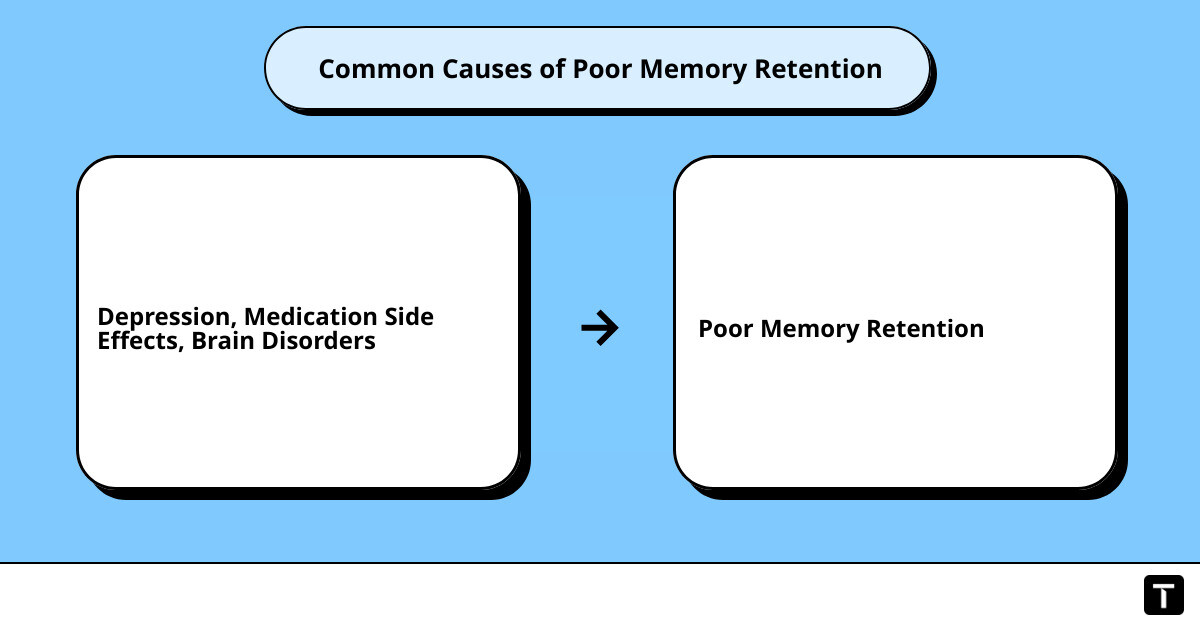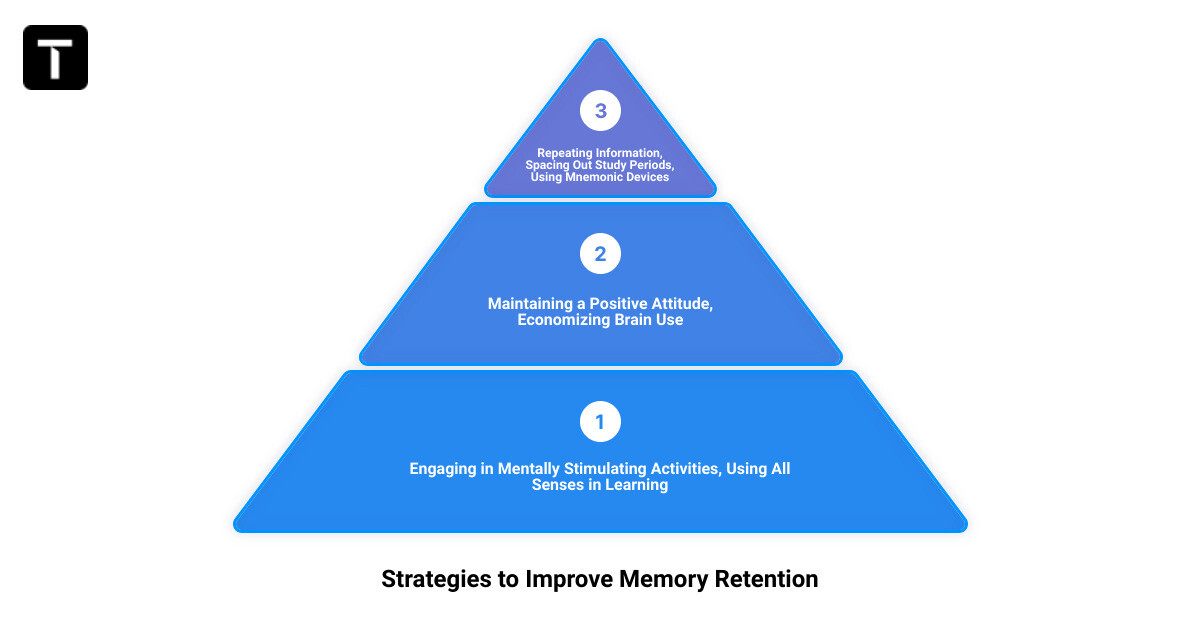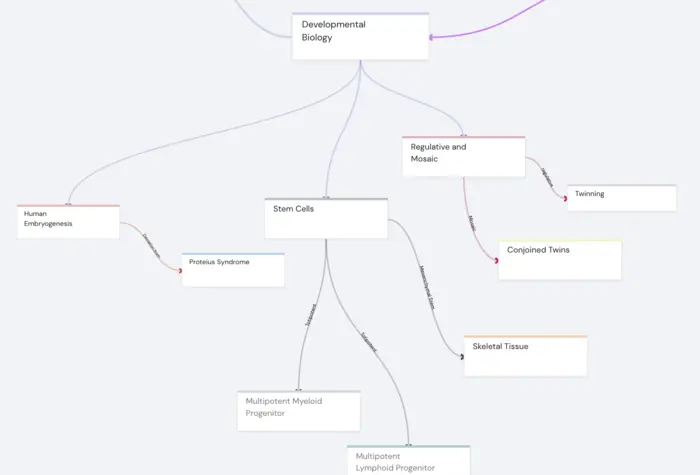Unlock the potential of your brain and learn the art of mastering memory retention. The ability to recall information is an essential skill that affects all aspects of life, from remembering the grocery list to mastering a new language such as Mandarin. However, many people struggle with memory retention, especially as they age or when they are learning complex subjects. In this article, we will explore the science of memory retention, common causes of poor memory, and effective strategies to enhance memory power, focusing on how the Traverse app can significantly improve your learning journey. Let's dive into the fascinating world of memory retention and discover how to unlock your brain's full potential.
Understanding Memory Retention: What It Is and Why It Matters
Imagine being able to recall every Mandarin character you've ever studied, effortlessly and accurately. Sounds impossible? It's not. This superpower is within your reach thanks to the science of memory retention. But first, let's understand what memory retention is and why it is so crucial in our learning journeys.
Memory retention is the process of maintaining or storing information over time. It's what allows us to recall facts, experiences, skills, and more from our past. This process is an intricate dance performed by our brain. With the help of the amygdala, our emotional memory storage center, and the hippocampus-cortex, our primary memory storage center, information gets encoded and stored for later retrieval.
There are two main types of memory: short-term and long-term. Short-term memory, also called 'working' memory, is like a mental whiteboard where we temporarily scribble down phone numbers or directions. But this space is limited and only lasts for minutes. Then there's long-term memory. This is where information needs to leap to if it's to be retained for days, weeks, years, or even a lifetime. The transition from short-term to long-term memory is critical for learning and is influenced by three primary mechanisms—urgency, repetition, and association.
Memory retention impacts every aspect of our lives, but its importance is particularly pronounced in learning. Without the ability to retain information, learning would be an uphill battle, with us constantly struggling to remember what we just learned. In the context of learning Mandarin, effective memory retention means being able to recall characters, tones, and grammatical structures, which can significantly accelerate your language acquisition.
But what's fascinating is that we can actively improve our memory retention. Through strategies like repetition and association, and tools like spaced repetition, we can reinforce neural pathways associated with the information we're trying to remember, increasing the likelihood of it being stored in long-term memory.
Understanding the workings of memory retention is the first step towards mastering it. With this knowledge, we can begin to implement techniques and strategies that not only boost our memory retention but also supercharge our learning process. Stay tuned as we delve deeper into the common causes of poor memory retention and how to overcome them.

Common Causes of Poor Memory Retention
Memory retention plays a crucial role in our ability to learn and recall information. However, it's not uncommon for individuals to experience challenges in this area. Let's explore some factors that may be contributing to poor memory retention, such as depression, medication side effects, and brain disorders.
Depression and Memory Retention
Depression is more than just a feeling of sadness. It's a mental health condition that can significantly impact various aspects of your life, including memory retention. In fact, it's been noted that individuals with depression may experience difficulties with memory, with struggles in recalling information or concentrating on tasks. An overwhelmed mind, often a symptom of depression, can contribute to short-term memory loss and forgetfulness. It's essential to seek professional help if you're experiencing signs of depression to address these symptoms and improve memory.
Medication Side Effects and Memory Retention
Sometimes, the cause of memory issues isn't emotional but rather physiological. Certain medications can cause memory loss as a side effect. This includes both over-the-counter drugs and prescription medications. It's crucial to discuss any changes in memory with your healthcare provider to identify if your medication could be contributing to memory loss.
Brain Disorders and Memory Retention
In some cases, poor memory retention could be a sign of a more serious condition, such as a brain disorder. Alzheimer's disease, for example, is a well-known disorder that significantly impairs memory and cognitive function. It's not just age-related disorders that can impact memory, though. Head trauma, including brain injuries from high-impact sports like football or boxing, can also lead to memory loss. It's important to consult with a healthcare professional if you're experiencing persistent memory issues, as early detection can improve the management of these conditions.
Understanding the possible causes of poor memory retention is crucial as it can guide you on the necessary steps to take to improve your memory. In the following sections, we'll look at strategies to enhance memory retention and how to leverage tools like the Traverse app to supercharge your learning process.

Strategies to Improve Memory Retention
Unlock the power of your brain by implementing these scientifically-backed strategies that can significantly boost your memory retention. Each of these strategies focuses on enhancing the three main processes of memory: encoding, storing, and retrieving.
Engaging in Mentally Stimulating Activities
Higher education and continuous learning are associated with better mental functioning, even in old age. Make it a habit to challenge your brain with mental exercises. This could be as simple as reading a book, joining a discussion group, dabbling in art or music, or even proposing a project at work that involves a skill you don't usually use. This active mental engagement promotes the building and preserving of brain connections, making lifelong learning a top priority.
Using All Senses in Learning
Engage more of your brain in the learning process by involving all your senses. Research shows that we recall information better when we learn it through multiple senses. For instance, when learning to write Mandarin characters, try to visualize the character, say its pronunciation out loud, and write it down to engage your sense of touch.
Maintaining a Positive Attitude Towards Memory Preservation
Your belief about your memory capabilities can significantly impact your memory function. Positive messages about memory preservation into old age can boost your memory tasks performance. In contrast, negative stereotypes may hinder your memory function. So, always believe in your capability to improve your memory.
Economizing Brain Use with Tools
Designate your mental energy to learning new and important things by using tools to remember routine information. Use calendars, planners, and shopping lists to keep track of daily tasks and events. This strategy allows you to focus on encoding, storing, and retrieving new information.
Repeating and Reinforcing Information
When you want to remember something new, repeat it out loud or write it down. This action reinforces the memory connection. For example, as you learn a new Chinese character, repeatedly write it down, say its pronunciation, and use it in a sentence.
Spacing Out Study Periods
Avoid marathon study sessions. Research has shown that students who study regularly remember the material far better than those who cram. Spacing out your study periods gives you time to process information adequately, enhancing memory retention.
Using Mnemonic Devices
Mnemonic devices are a powerful tool in memory retention. They involve creating a connection between new information and something you already know. For instance, while learning Mandarin, you might create a sentence using the initials of a list of vocabulary words you need to remember. The more absurd or funny the mnemonic, the easier it is to remember.
Each of these strategies offers a unique approach to enhancing your memory retention. By understanding and applying these techniques, you'll be well on your way to mastering Mandarin or any other subject you're passionate about.
The Role of Diet and Exercise in Memory Retention
Your learning journey doesn't end with mental exercises and study techniques. In fact, it extends to what you eat and how you move. A healthy diet and regular exercise play a significant role in memory retention, providing the essential nutrients and stimulation your brain needs to function optimally. Let's look at the specifics of how certain foods and physical activities can boost your memory retention.
Foods That Improve Memory
"Brain foods" aren't just a myth. Certain foods are packed with nutrients that enhance brain health and improve memory. For instance, leafy green vegetables, nuts, berries, tea, coffee, and oily fish are all found to contribute to strengthening the brain and enhancing memory.
Fatty fish, like salmon and sardines, are rich in omega-3 fatty acids, which are pivotal for building brain and nerve cells. These fatty acids are essential for learning and memory and have been shown to delay cognitive decline.
Also, plant-based foods, whole grains, legumes, chicken or turkey, olive oil or coconut oil, herbs and spices, and red wine (in moderation) can aid memory improvement. However, a high-fat and high-sugar diet, common in Western eating habits, can impair hippocampal memory. Therefore, avoid processed foods, butter, red meat, fried foods, salt, and cheese for optimal brain health.
Exercise and Brain Health
Regular physical activity isn't just good for your body; it's a brain booster too. Exercise improves oxygen and nutrient delivery to your body, aids in the creation of new brain cells essential for memory storage, and notably increases the number of cells in the hippocampus, the primary region of the brain associated with memory.
You don't need to engage in strenuous workouts to reap the benefits. Even simple exercises like walking can do wonders for your brain health. So, adding some form of physical activity to your daily routine can help supercharge your cognitive function and memory retention.
In conclusion, your diet and exercise routine are critical elements for memory enhancement. By making healthy food choices and keeping physically active, you're not just taking care of your body, but also fueling your brain for better memory retention. This holistic approach can be a game-changer in your journey to master Mandarin or any other learning endeavor. Next, we'll explore how the Traverse app can further aid in improving your memory retention.
How Traverse App Can Help Improve Memory Retention
Weaving together the threads of cognitive science, the Traverse app is designed to provide a holistic learning experience. It integrates powerful features such as mind mapping, spaced repetition flashcards, and connected note-taking, all tailored to optimize memory retention.
Mind Mapping Feature of Traverse
Mind mapping is a powerful tool for visual learners. It allows you to organize information in a way that mirrors the interconnectedness of your brain, making it easier to form and solidify neural pathways. Traverse's mind mapping feature allows you to pan around the map, create and resize nodes, and connect these nodes to create a nested structure. This approach facilitates a deeper understanding of the material and promotes long-term retention of information.
Spaced Repetition Flashcards in Traverse
Spaced repetition is a time-tested strategy for memory retention. The Traverse app incorporates this principle with its flashcard feature. Instead of cramming information, which often leads to quick forgetting, the app schedules reviews of flashcards over time, based on your performance. This method strengthens your recall and helps embed the information in your long-term memory.
Connected Note-Taking in Traverse
Traverse also revolutionizes the traditional note-taking process with its connected note-taking feature. It eliminates the isolation of ideas, instead linking notes across various topics. This enables learners to see connections and patterns, enhancing comprehension and memory retention.
Importing Anki Decks for Continued Learning
For those already using Anki, a popular flashcard app, Traverse offers seamless integration. It is the first 100% Anki-compatible learning app. You can import your Anki decks into Traverse, making it easier to keep all your learning materials in one place and continue your journey with enhanced features.
Partnership with Mandarin Blueprint for Mandarin Learners
To further enhance the learning journey for Mandarin learners, Traverse has partnered with Mandarin Blueprint. This partnership facilitates a higher-converting and more engaged learning experience. The combined expertise of both platforms equips learners with effective strategies to master Mandarin, including memorizing 3000 Chinese characters.
The Traverse app is more than just a study tool. It is a comprehensive solution that employs the latest research in cognitive science to revolutionize learning. By leveraging its features and taking advantage of its partnership with Mandarin Blueprint, you can take a significant leap towards mastering Mandarin or any other field of study.
Conclusion: Taking Control of Your Memory Retention
Revolutionize your learning journey, one memory at a time! Mastering memory retention is no longer an elusive goal. As we have explored, it's a multifaceted endeavor that involves engaging in mentally stimulating activities, using all senses in learning, maintaining a positive attitude, economizing brain use, reinforcing information, spacing out study periods, and even considering your diet and exercise.
The journey to better memory retention is not a solitary one. A lifelong learner like you can now tap into the power of sophisticated tools like the Traverse app. With features like mind mapping, spaced repetition flashcards, connected note-taking, and the ability to import Anki decks for continued learning, Traverse is not just a study aid but a comprehensive learning companion. Plus, its partnership with Mandarin Blueprint amplifies its efficacy for Mandarin learners, making the challenging task of learning Chinese characters a more manageable and effective process.
With the strategies we've discussed, you're now armed with an arsenal of techniques to enhance your memory retention capacity. But remember, belief in your ability is the first step to success. Your memory, just like any skill, can be strengthened and improved with the right mindset and practice.
From learning a new language like Mandarin to mastering a professional skill, memory retention is your secret weapon. It's time to seize control of your learning journey, enhance your memory retention, and unlock your potential with Traverse. Because when you unlock the power of your memory, you unlock the power of your mind.

